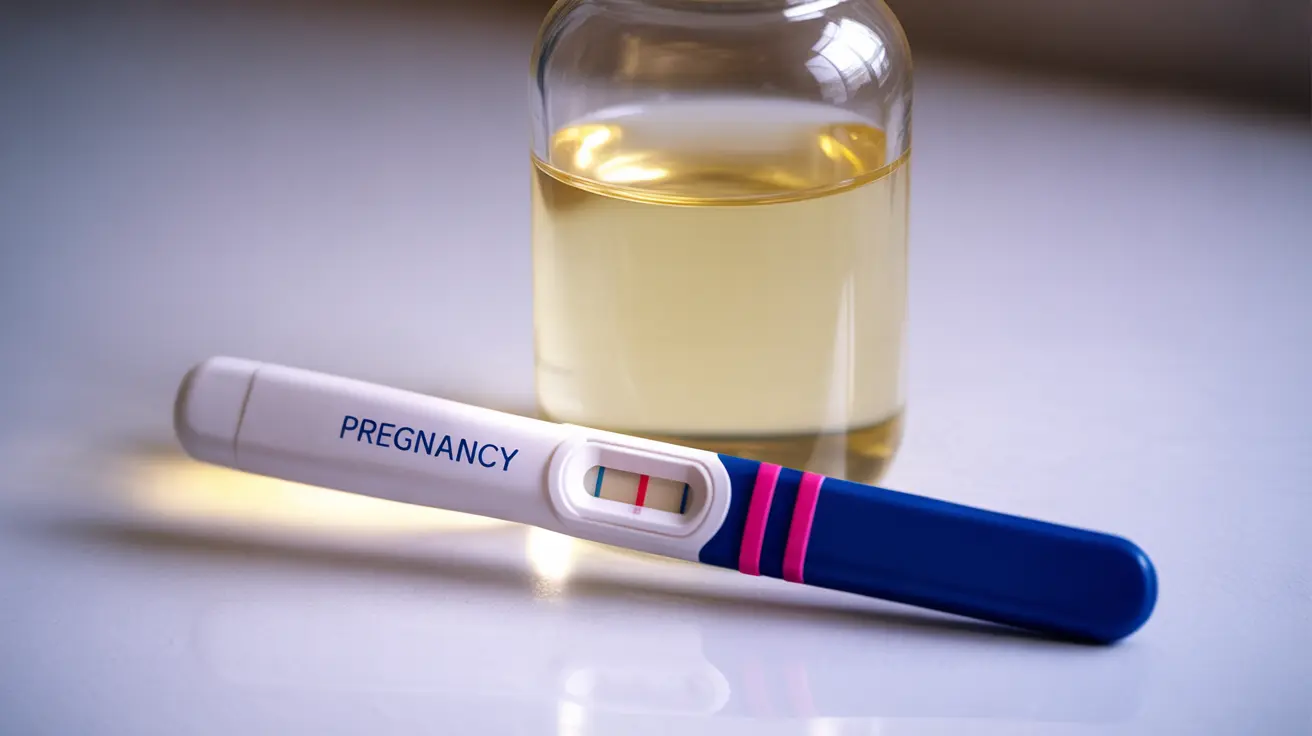When it comes to pregnancy testing, accuracy is crucial. Many people wonder about what liquids can affect pregnancy test results, either intentionally or accidentally. This article will explain the science behind pregnancy tests, what liquids actually work for accurate results, and why using alternative substances can lead to misleading outcomes.
Understanding how pregnancy tests work is essential for getting reliable results. These tests are specifically designed to detect human chorionic gonadotropin (hCG), a hormone that's only present in urine when someone is pregnant.
How Pregnancy Tests Are Designed to Work
Pregnancy tests are sophisticated diagnostic tools created to detect one specific thing: the presence of hCG hormone in urine. This hormone is produced by the developing placenta shortly after a fertilized egg implants in the uterus, typically around 6-12 days after conception.
The test strip contains antibodies that specifically react with hCG molecules, creating the visible line or symbol indicating a positive result. This precise chemical reaction is what makes pregnancy tests reliable when used correctly.
The Only Reliable Liquid for Pregnancy Testing
Despite various myths and social media trends, there is only one liquid that can provide accurate pregnancy test results: urine from someone who is pregnant. This is because:
- Only pregnant women produce hCG in their urine
- The test is calibrated specifically for urine's chemical properties
- Other liquids can't replicate the precise biological markers needed
Common Misconceptions About Alternative Liquids
Many household liquids have been incorrectly suggested as alternatives for pregnancy testing, including:
- Soap solutions
- Bleach
- Vinegar
- Tap water
- Soft drinks
While some of these liquids might cause a reaction with the test strip, any result they produce is meaningless and doesn't indicate pregnancy. These reactions occur due to chemical interference with the test's components rather than the presence of pregnancy hormones.
Why Alternative Liquids Can Show False Results
When non-urine liquids interact with pregnancy tests, they can create misleading results through various mechanisms:
- Chemical reactions that break down the test strip
- Disruption of the test's antibody-based detection system
- Physical damage to the testing membrane
- Interference with the test's chemical indicators
Ensuring Accurate Pregnancy Test Results
To get reliable results from a pregnancy test, follow these essential guidelines:
- Use only fresh urine for testing
- Follow the test instructions exactly
- Check the expiration date before use
- Store tests properly at room temperature
- Take the test at the right time in your cycle
- Use first-morning urine when possible
Frequently Asked Questions
What liquid is needed to reliably make a pregnancy test show a positive result?
Only urine containing hCG from a pregnant person can reliably produce a positive pregnancy test result. No other liquid can accurately indicate pregnancy.
Can household liquids like bleach or soap cause a pregnancy test to turn positive?
While some household liquids might cause a reaction that looks positive, these are false results and don't indicate pregnancy. These reactions occur due to chemical interference with the test's components.
Why does only urine containing hCG give a true positive result on a pregnancy test?
Pregnancy tests are specifically designed to detect hCG, which is only present in the urine of pregnant individuals. The test's antibodies are engineered to react exclusively with this hormone, making it the only reliable indicator of pregnancy.
How can false positive pregnancy test results happen if I used something other than urine?
False positive results can occur when other liquids chemically react with the test strip's components, damaging the testing membrane or interfering with its normal function. These reactions don't indicate pregnancy and invalidate the test.
What steps should I take to ensure accurate results when using a home pregnancy test?
Use only urine for testing, follow package instructions carefully, check the expiration date, use first-morning urine when possible, and wait the full recommended time before reading results. If you're unsure about results, consult a healthcare provider.




